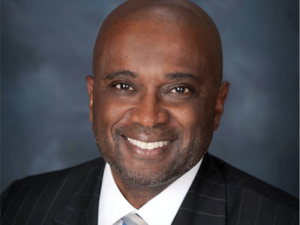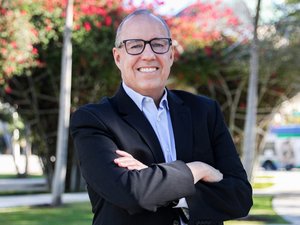D.C.'s technology and startup community is known as a hub for plenty of sectors: cybersecurity, event tech, data analytics startups, advocacy platforms. The list goes on.
But D.C. tech wouldn't be complete without including the plethora of education technology platforms in the metro area—Blackboard, 2U, Teaching Strategies, LearnZillion, Interfolio, Full Measure, to name a few.
Now, with new (and to many, controversial) Secretary of Education Betsy Devos beginning her term, how could the role of edtech companies change?
Many companies work with public school districts on new technologies to use in the classroom, so changes to federal policy or funding under the new Secretary could impact that work.
When we reached out for comment, many companies weren't eager to chat, perhaps hoping to avoid any sort of political controversy that has enveloped companies like Under Armour in recent weeks. Blackboard etc. all declined to comment.
However, Dulles, Va.-based Real Time Cases, which focuses on providing resources for higher education instructors and students, is looking to find the positive outlook on working with a new administration. Real Time Cases is a startup founded in 2015 by Jacob Schaufeld, Jordan Levy and Andrew Pohle to provide videos for those interested in learning about the "real world." On the platform, users will find real-world case studies from actual executives from existing tech companies on the challenges they are facing.
Schaufeld told DC Inno that although his company focuses on higher education, it had crossed the company's mind to expand into K-12 spaces sometime in the future. In considering the K-12 market, the founders would most likely start by expanding into private or charter schools because, in general, they face fewer regulations.
Now, if they ever do decide to expand, it could be seen as a positive thing that DeVos favors charter schools and privatization, Schaufeld said.
"The ways that we were going to approach it is through a private institution because there is less regulation around the content used," he said. "Public institutions are stuck teaching a regimented type of content—that isn't to say that there isn't merit to those kind of things—but for us, it's definitely easier to work with charter or private because they have more flexibility."
Another positive outlook, Schaufeld notes, could come from the fact that DeVos lacks public education experience—she could bring a disruption that the public education system, with all of its flaws, might need.
"Sometimes when someone quite new comes into one of these organizations or departments or industries, they don't bring the same boundaries that others have," he said. "There's definitely issues in higher ed, which is why we started this company."
Yet, Schaufeld said many in the edtech industry are worried about how the lack of regulations could impact accessibility for students. For example, right now, it's mandated that companies have to cater their products to deaf and blind students; however, if it weren't mandated, Schaufeld said it's likely that maybe some companies wouldn't alter their products to make them accessible to students with disabilities.
"I think what a lot of people are scared about is that when you make everything competitive or make everything for-profit, naturally, companies are segmenting their markets, and they're only catering to the best market for them," he said. "Things like accessibility could be a problem for a lot of people if they're not mandated."
Photographer: Andrew Harrer/Bloomberg




